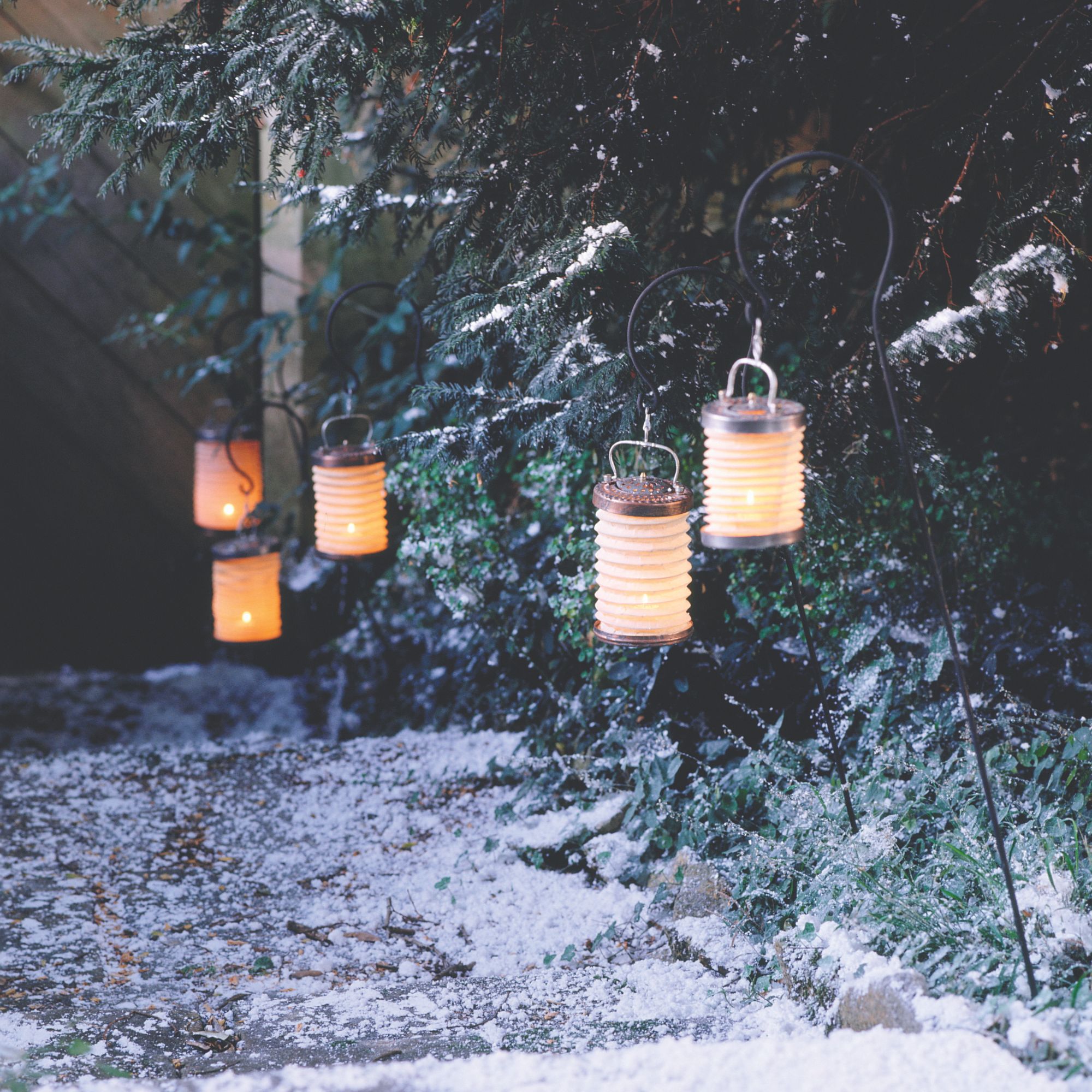
It might be the last month of the year, but there are still plenty of jobs to do in the garden in December.
In fact, many December gardening jobs are key to preparing your garden for healthy growth and bumper crops in the spring, whether you're deciding on the best fruit and vegetables to grow in December or which plants you should cut back in winter.
We've rounded up the most important jobs to do in the garden in December to keep you busy this month.
Jobs to do in the garden in December
If you're anything like us, you'll undoubtedly prefer knowing exactly what it is you should be doing in your garden each month – and when.
To help you out this December, then, we've compiled your ultimate winter gardening checklist.
What you'll need
1. Clear up debris
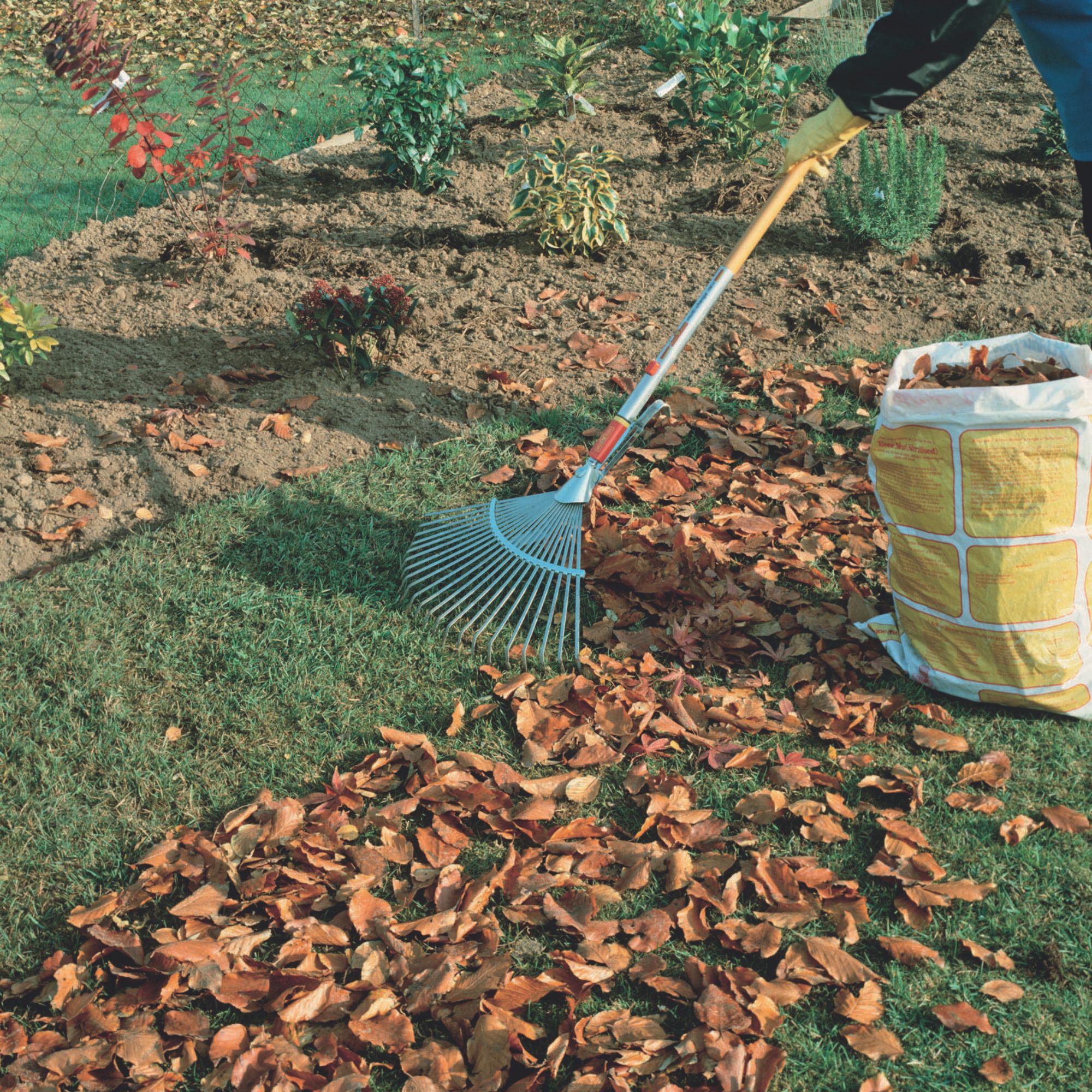
One of the most important jobs to do in the garden in December is to keep your space free of any debris.
'It's important that all fallen leaves are cleared from the grass,' say the experts at Travis Perkins. 'Doing so not only keeps an outdoor space looking clean and tidy, but it also means that the leaves will not trap moisture or risk allowing grass to develop diseases like fusarium patch (sometimes referred to as snow mould).'
You should also keep paved areas like patios, paths and driveways clear of fallen leaves to remove any slip hazards. 'Leaves also contain tannin, which stains certain paving types, so keeping up with removal and cleaning can help prevent unwanted staining, too,' says Trevor Knight, landscape paving specialist at Marshalls Plc.
Better still, you can use Monty Don's autumn leaves hack to transform all of those fallen leaves into garden gold: leaf mould is, after all, a clever (and free) way to help your garden thrive in the months ahead.
2. Prune overgrown plants
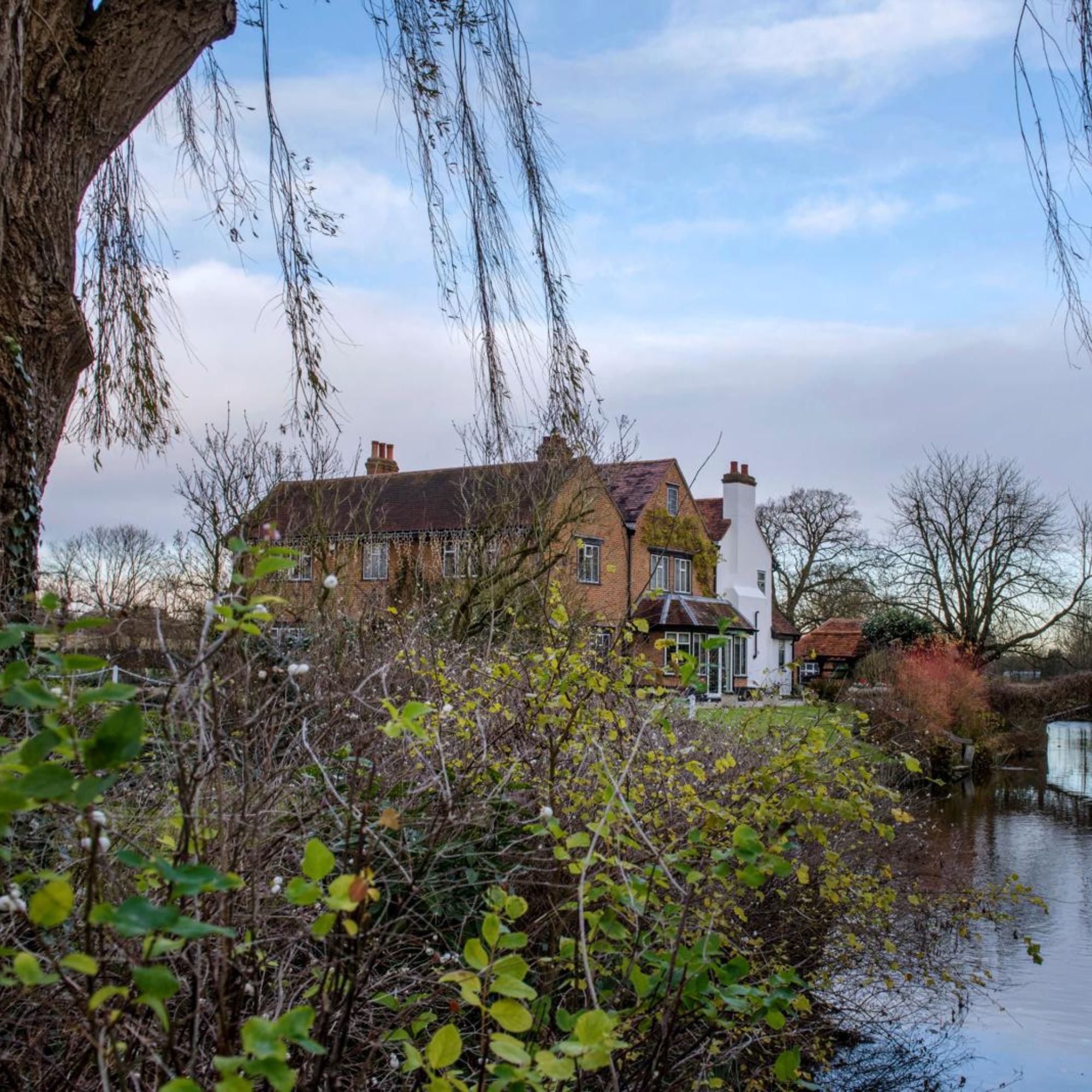
Another key task to add to your list of December gardening jobs? Getting to work with your pruning shears, of course! And there are plenty of plants to prune in December.
'Many shrubs and plants will be dormant in the winter and then start growing once temperatures increase in early spring,' says Morris Hankinson, director of Hopes Grove Nurseries.
Before they start growing again, Morris says you should prune them to remove any overgrown, damaged or diseased growth.
'Some of the plants that need particular attention in December include wisteria, fruit trees, and climbing roses.'
3. Repair fences, gates, and trellises
The winter months present the perfect opportunity for you to do some (literal) damage control around your garden.
'It might seem like a strange task to take on in the winter, but if you have damaged fences, gates or trellises that will have climbing plants all over them come spring and summer, now is the best time to fix them up,' says Craig Wilson, co-founder and in-house gardening expert at Gardeners Dream.
'Whilst your plants are dormant, making these repairs will be less likely to cause any damage.'
4. Plant winter fruit and vegetables
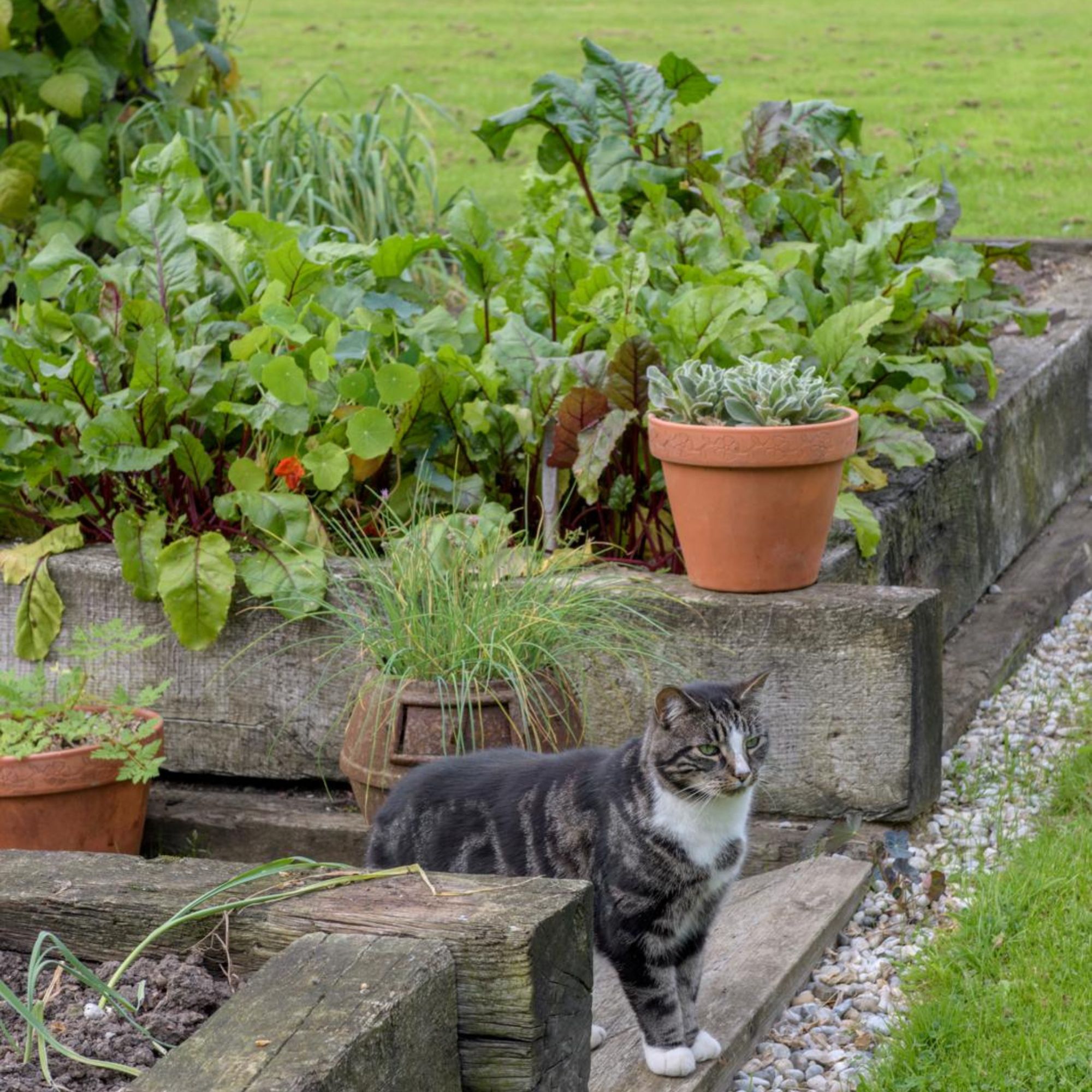
While you're learning how to prepare your raised beds for winter, it's also a good idea to spend some time figuring out which fruit and vegetables you can grow in December, too.
'This month, sow hardy vegetables such as broad beans, onions, and garlic outside in moderate areas or beneath cloches,' says Andrew Porwol, seasoned garden and landscape expert and founder of Sapcote Garden Centre. 'Indoors or in greenhouses, start chillies, sweet peas, and early tomatoes on trays.'
Once you've figured out what to sow in December, quite frankly, the world is your oyster, so this is a job that will be well worth tackling in the long run.
5. Mulch around your plants
Mulching might not be glamorous, but it's one of those must-do jobs to do in the garden in December. In fact, preparing your soil for winter could be the key to a healthy garden come spring. But it's also a great way to protect plants from frost.
'Now is a good time to apply a thick layer of mulch to your plants,' says Craig, 'as not only will this insulate the soil, but it will also provide your plants with nutrients to keep them going throughout the winter.'
Adding that 'most hardy plants will be fine without mulch,' Craig points out that you will definitely 'want to prioritise perennial plants as these are much more sensitive to frost and colder temperatures.'
6. Plant a feast of berries for the birds
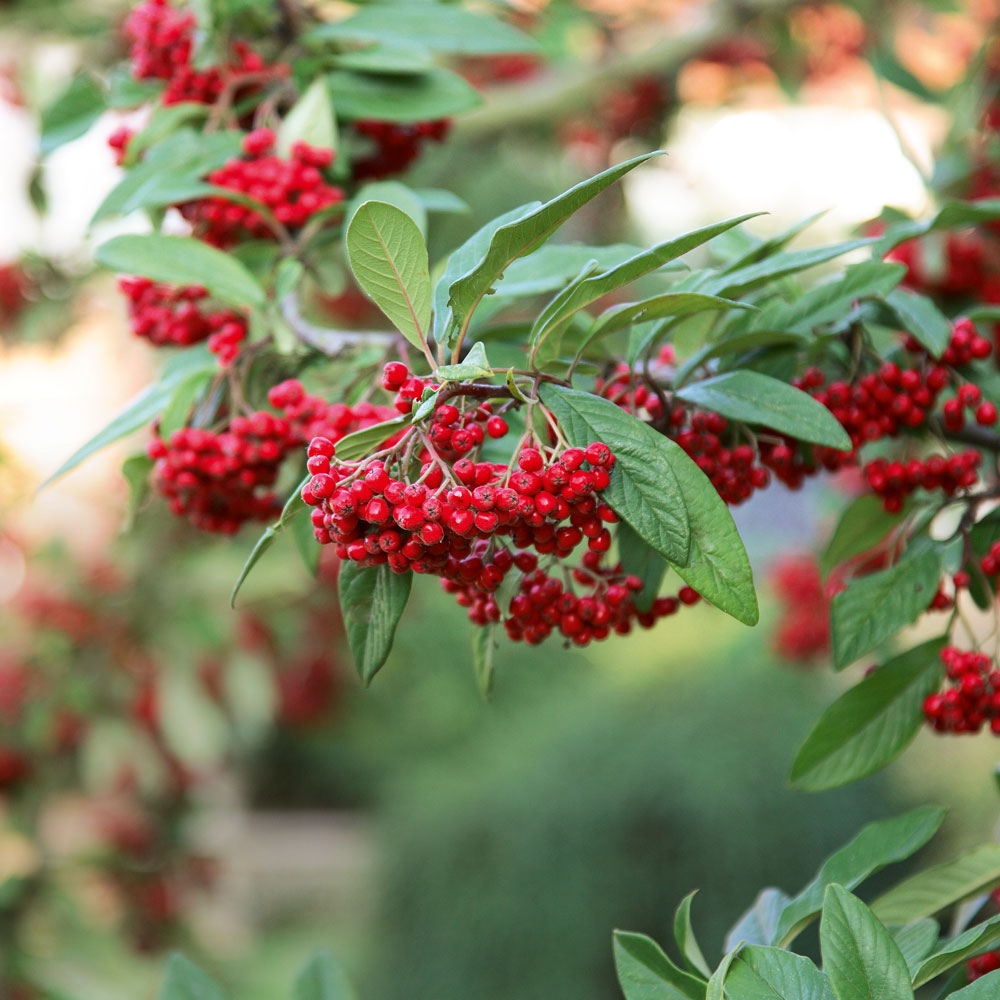
Berries are the jewels of the December garden, offering a much-needed pop of colour and a festive treat for the garden birds (which is especially ideal if you're tired of figuring out how to protect your bird feeder from rats and squirrels).
To keep your feathered friends well fed throughout the colder months, try planting holly, mistletoe, pyracantha, cotoneaster and hawthorn – many of which are, handily, on the list of best hedging plants for gardens anyway.
Birds will also appreciate rosehips and crab apples. Remember, though, that many of the berries enjoyed by birds are not suitable for us to eat. If you'd like to share in the feast, both birds and humans can feast on aronia (chokeberry) berries. These are a little bitter when eaten raw, but packed with vitamin C.
7. Take hardwood cuttings
If you've already mastered the art of taking cuttings like Monty Don, now is the time to put your skills to good use, as experts say taking hardwood cuttings is absolutely on the list of jobs to do in the garden in December.
'You should only take hardwood cuttings during the dormant season,' says Morris, 'so December is the ideal time to get to work!'
'Ensure you select the most healthy shoots possible and remove any soft tip growth before cutting into 15-30cm sections,' he continues. 'Then, when cutting into sections, trim just above and just below buds (so that you have one right at the top and right at the bottom of your cutting).'
Once this is done, all you need to do is plant your cuttings in well-drained soil and water regularly, before leaving them for 10-12 months.
8. Create winter interest with bark and stems

Anyone who knows how to plant bare root trees will know that now is perfect tree-planting time! So, why not think ahead to next Christmas and prep your garden now with some trees that will provide colour and texture over the winter months?
The Acer griseum (paperbark maple) is a great example of this, as the cinnamon-coloured peeling bark looks wonderful all year round.
The Cornus (dogwood) and Salix (willow) families are perfect for bright red and golden stems in the winter months, too – Cornus sanguinea types are particularly exceptional, such as ‘Midwinter Fire’ (shown above) for both red and golden colours.
And, finally, never dismiss the appeal of fruit trees: they should usually give you blossoms in the springtime, glossy foliage in the summer, a bountiful harvest come autumn, and plenty of shelter for garden birds come winter, too.
9. Feed the birds
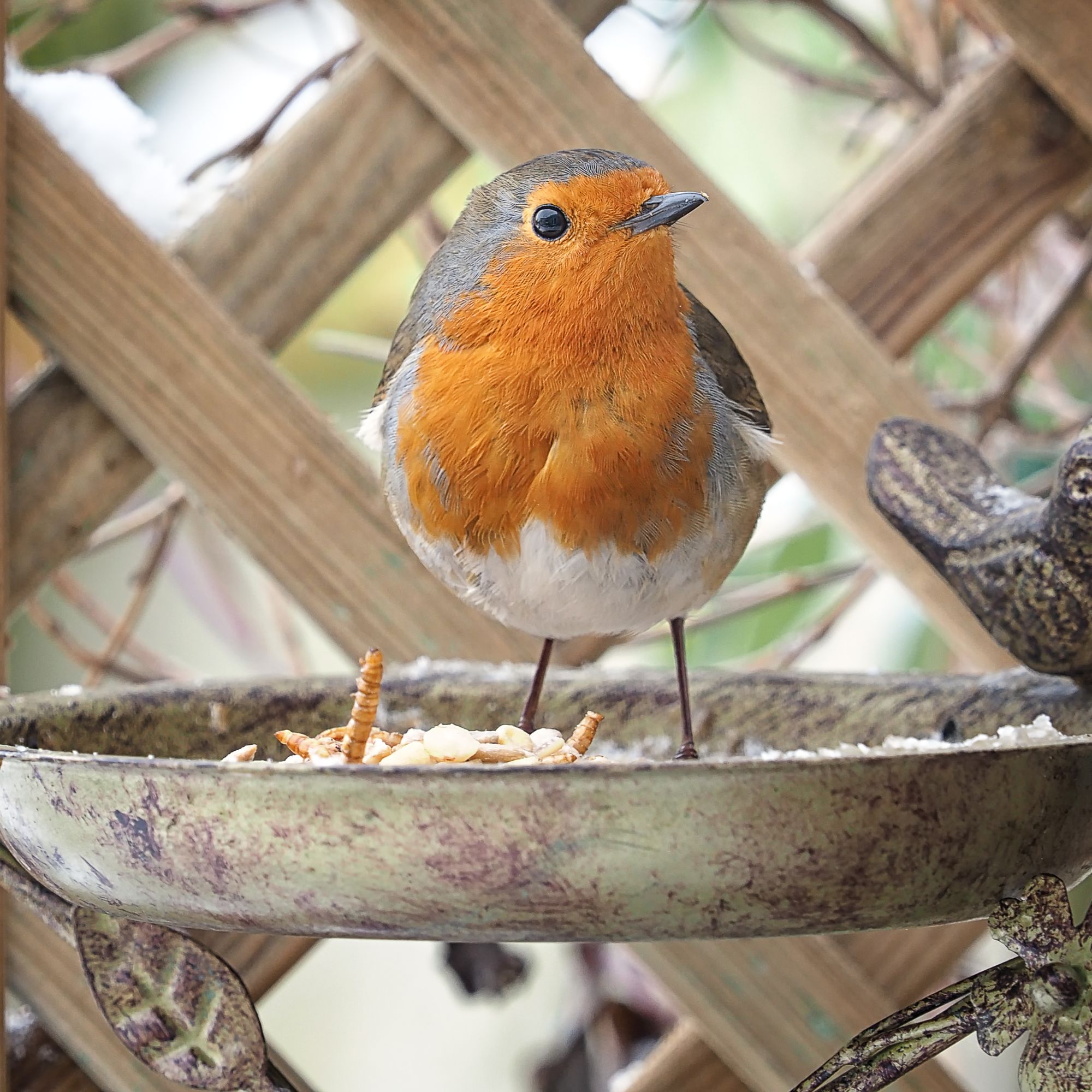
One of the most important jobs to do in the garden in December – particularly if you're working hard on creating a wildlife garden of your own – is to feed the birds.
'Winter can be tough for wildlife, and birds in particular benefit from extra food when the temperatures drop,' says Craig.
'I’d recommend setting up bird feeders in your garden and keeping them stocked with seeds and nuts. Not only will this help the birds, but it will also bring some life back to your garden during the dullness of winter.'
Alternatively, you could deck a garden tree with millet, berries, rose hips, dried fruits, fresh apples, nuts and special bird foods.
10. Plant bare root roses
Roses are one of the most popular flowering plants in the world for a reason: they look every bit as beautiful as they smell. And, while you may think of them as a summer bloom, planting them should actually be on your list of jobs to do in the garden in December.
'Now is the ideal time to plant bare root roses, as long as the ground isn't frozen,' says Morris.
'You should plant your bare root roses as soon as you have received them. When planting bare root roses (or any kind of bare root plant for that matter), you need to ensure the holes you dig are deep and wide enough for the roots to spread.'
Luckily, learning how to grow roses is easier than it sounds – you'll just need to know how to prune roses to get the most out of the blooms every year.
11. Protect your lawn
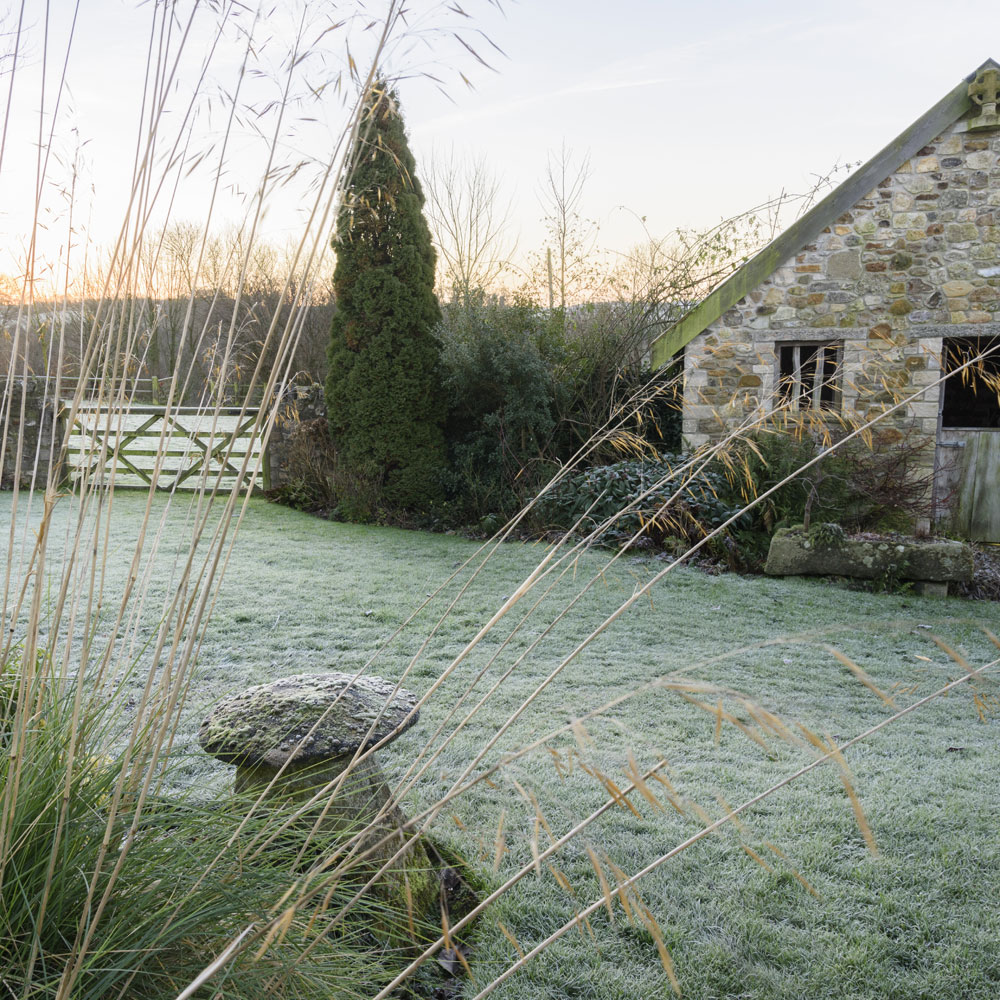
Did you know that you should never walk on grass when it’s frosty? Ever?
While lawn care tips will likely be on the bottom of your list of jobs to do in the garden in December, it's still vital to show your grass a little TLC over the colder months.
Try applying a a granular autumn/winter fertiliser that is high in potassium before any heavy frosts hit, for example, and remember to avoid your lawn mower: Monty Don wants you to let your grass grow long this winter, after all.
And, finally, wait until the frosts have finished before you sow grass seed; you want the soil to be warm and moist for grass seeds to germinate properly.
12. Give tender plants some extra TLC
It's a good idea to spend some time brushing up on overwintering techniques this December.
'Tender plants such as Cordyline and Passiflora caerulea need extra care in winter, as they are known for their sensitivity to frost,' says Craig.
'For potted plants, I’d suggest moving them to more sheltered spots in your garden, or, if you can, them into a greenhouse with working heaters. For those that are in the ground, you can wrap them in fleece as a temporary measure when weather forecasts are looking cold and frosty. Thankfully, temperatures don’t tend to drop too far below freezing in the UK, so standard 17g fleece should be suitable.'
If you are someone who enjoys the aesthetic look of Olea europaea (that's olive trees, for anyone not up to date with their Latin plant names), then be sure to keep an eye on these, too.
'Whilst they are considered hardy in mild climates, they can struggle in harsh UK winters, especially in colder regions or during particularly cold spells,' adds Craig.
FAQs:
Can you garden in December?
Absolutely! In fact, as our list demonstrates, there are plenty of jobs to do in the garden in December, from pruning to planting. The winter months are actually the best time to plant bare root plants like roses and fruit trees because they're in their dormant phase.
And, as always, keeping on top of maintenance tasks like shed and fence repairs and general tidying will save you time come spring, when you can focus on expanding your garden for the year instead. But, there are many vegetables you can sow now for a head start, like broad beans and winter salads.
How can I make my garden beautiful in winter?
Most of the garden is asleep during the winter months, but that doesn't mean it has to be boring. There are plenty of ways you can add winter interest, and it's all to do with strategic planting.
'Evergreens, decorative grasses and coloured shrubs such as dogwood and holly will add winter appeal,' says Andrew from Sapcote Garden Centre. 'Plants with fascinating bark, such as birch or twisted hazel, can help to provide texture and structure.
'Incorporate winter-flowering plants such as hellebores, snowdrops, and winter jasmine to create seasonal blossoms.'
With so many jobs to do in the garden in December, it's important to get to work even on the coldest of days. Just be sure to wrap up warm and make yourself a mug of something to take outdoors with you; there's nothing quite like a glug of hot tea in the winter sunshine, we promise!







